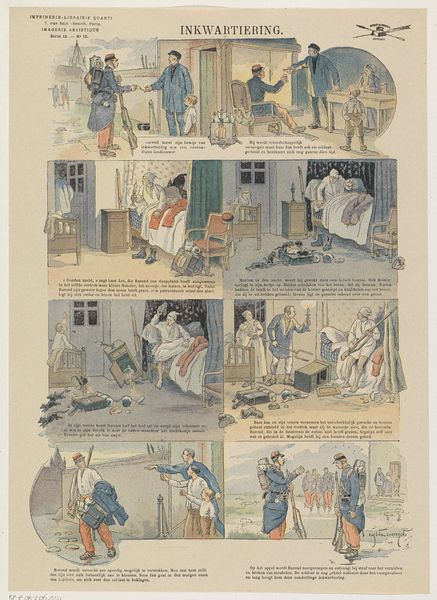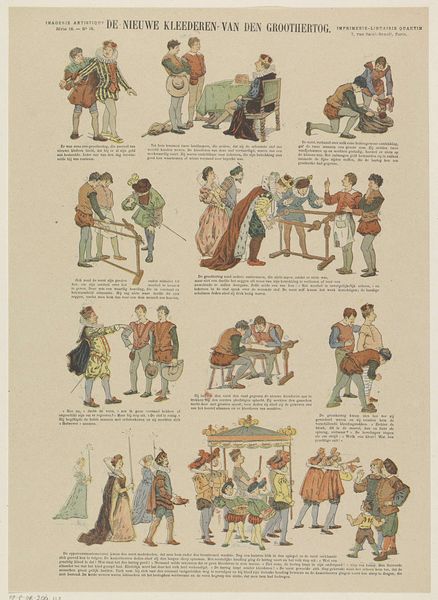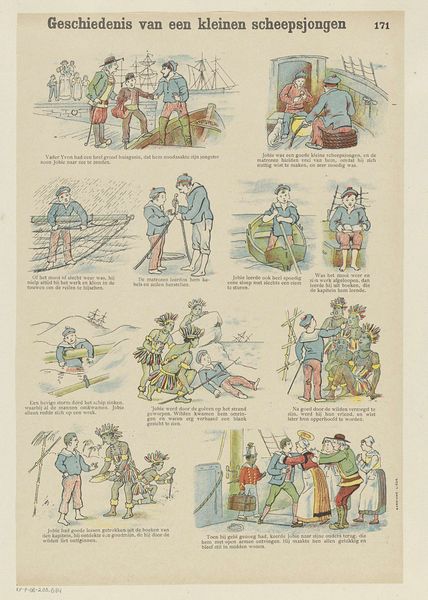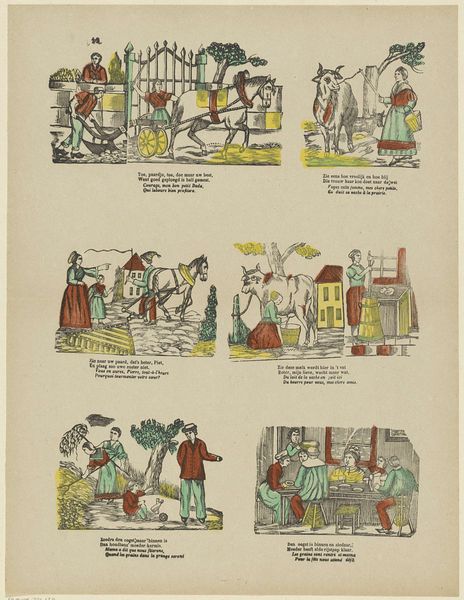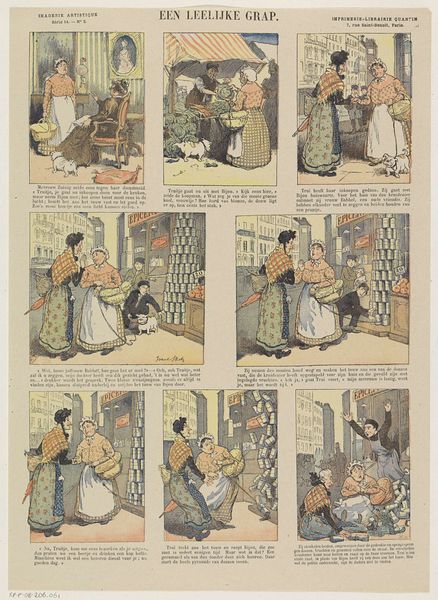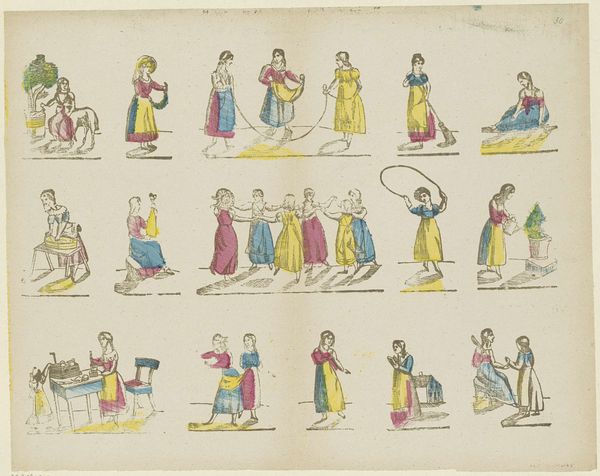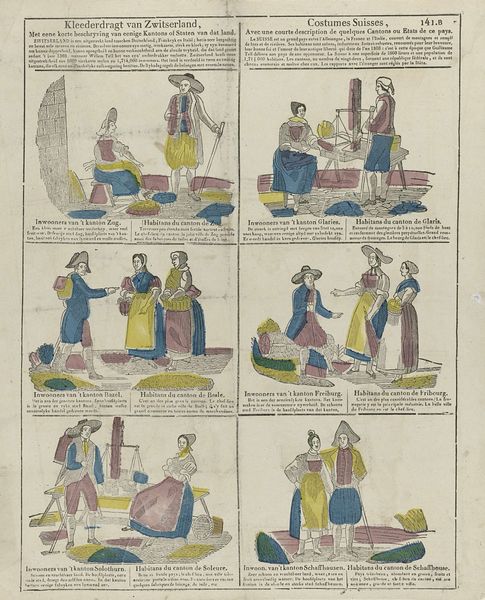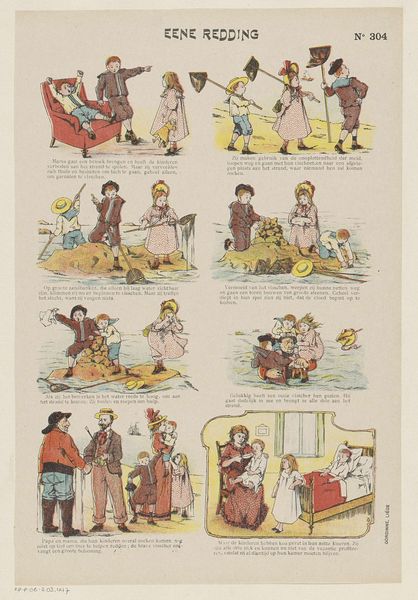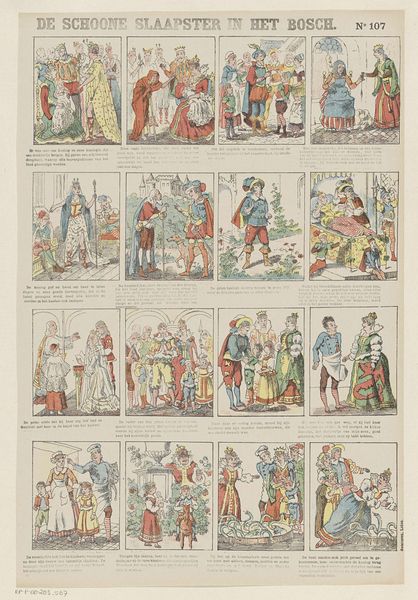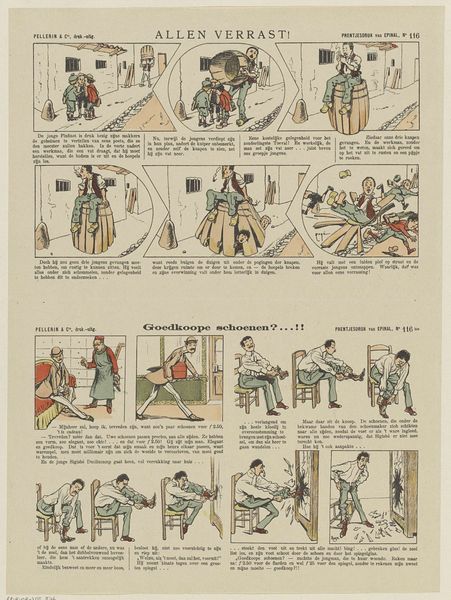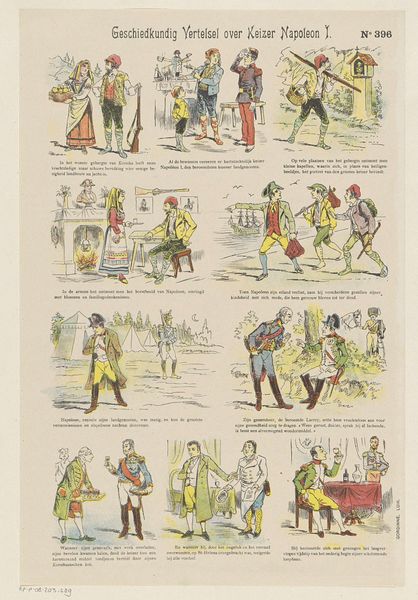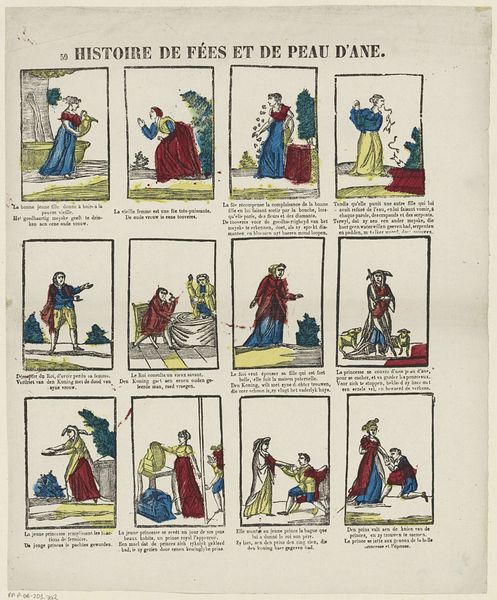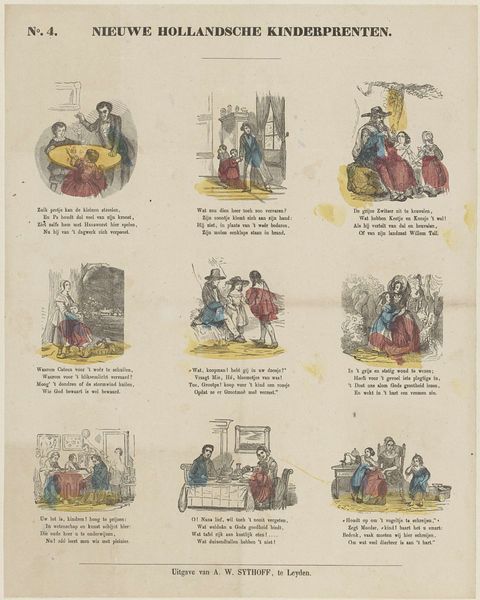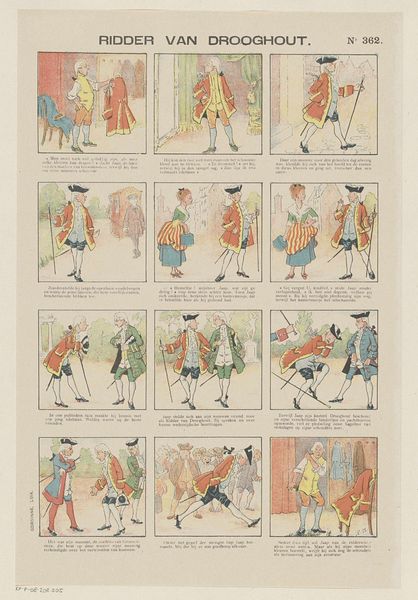
#
comic strip sketch
#
imaginative character sketch
#
quirky sketch
#
narrative-art
# print
#
personal sketchbook
#
sketchwork
#
ink drawing experimentation
#
folk-art
#
comic
#
sketchbook drawing
#
watercolour illustration
#
genre-painting
#
storyboard and sketchbook work
#
sketchbook art
Dimensions: height 366 mm, width 266 mm
Copyright: Rijks Museum: Open Domain
Rose Maury created this print, "Pierrot Goes Out to Dinner," sometime in the late nineteenth or early twentieth century. It depicts a series of vignettes that recount a Pierrot's disastrous attempt to woo a young woman. In France at this time, the figure of Pierrot, the lovelorn clown, was in vogue as a symbol of melancholic longing and artistic sensitivity. This image, however, sends up that tradition, depicting a Pierrot who is socially inept and utterly lacking in charm. The artist suggests that this clown's pretensions to elegance are hollow and ridiculous. The story unfolds in a series of panels that mimic the format of popular comic strips from this period. We might consider this a critique of the high-art pretensions of the Pierrot figure and its institutionalization in painting, poetry, and theater. Instead, Maury brings Pierrot down to earth, lampooning his absurd posturing. To understand this work better, scholars might research the popularity of the Pierrot figure in French art and culture during the late 1800s.
Comments
No comments
Be the first to comment and join the conversation on the ultimate creative platform.
